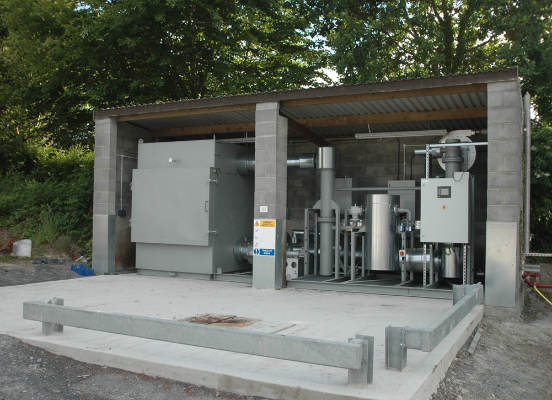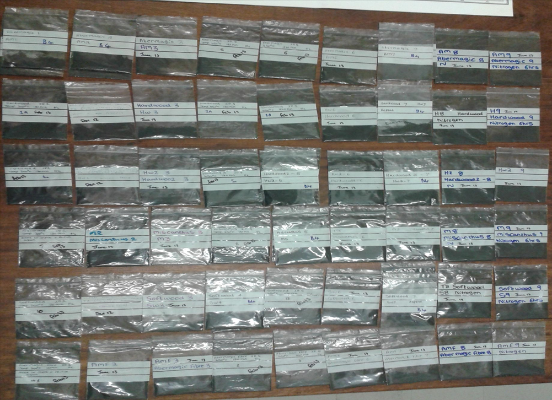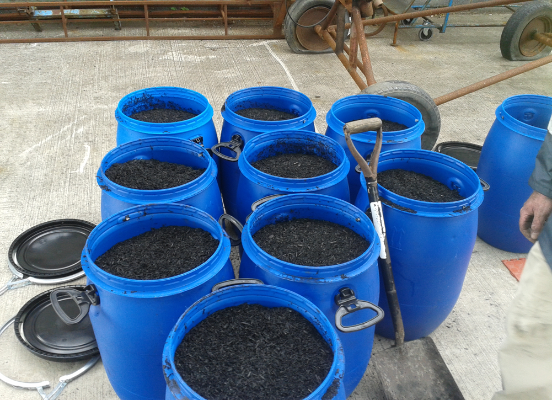Char Production
The properties of biochar can be highly variable due to the diversity of biomass and the complex chemical reactions that occurs during the thermal degradation of the material. Much of the work undertaken in the project is directed at optimising these variables to produce a tailored biochar for the removal of metal from waste water.
Current global research into pyrolysis are aimed at the production of bio-oil and bio-gas with less interest in the residual biochar. This has lead to the development of different technologies such as fast pyrolysis, slow pyrolysis, hydrothermal liquefaction and hydrothermal carbonisation which can produce biofuels and biochar with differing quality and yields. This project will mainly focus on slow pyrolysis as the yield of char is higher and can have higher concentration of surface functional groups with a lower volatile content.
Here at Aberystwyth we produce biochar from two main slow pyrolysis units, the small scale tube furnace which is capable of producing 2 litres of material and a pyrolysis plant capable of producing 1000litres. The project has also sourced biochar produced from different pyrolysis units include one at Commons Vision Ltd and another from Edinburgh University.




